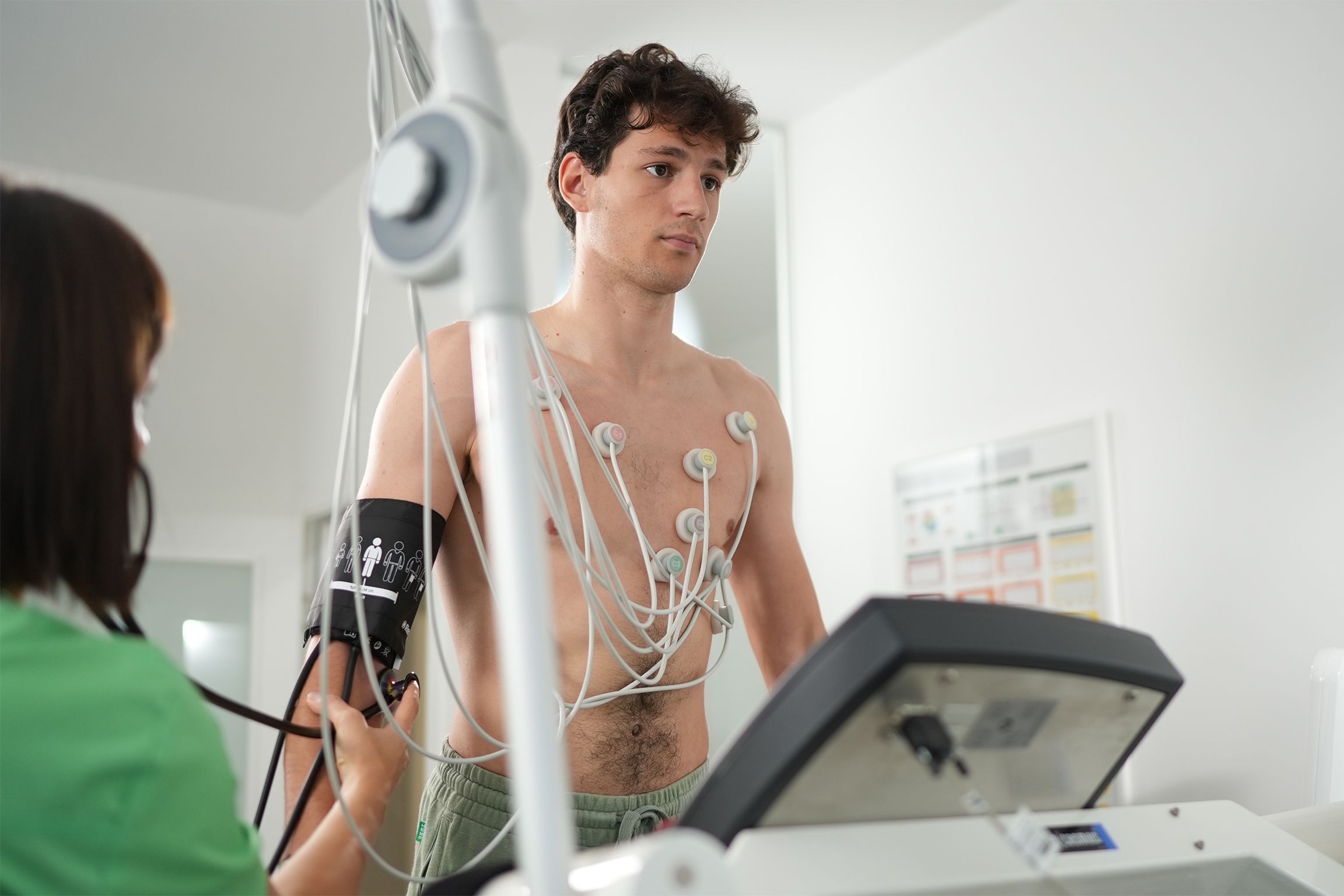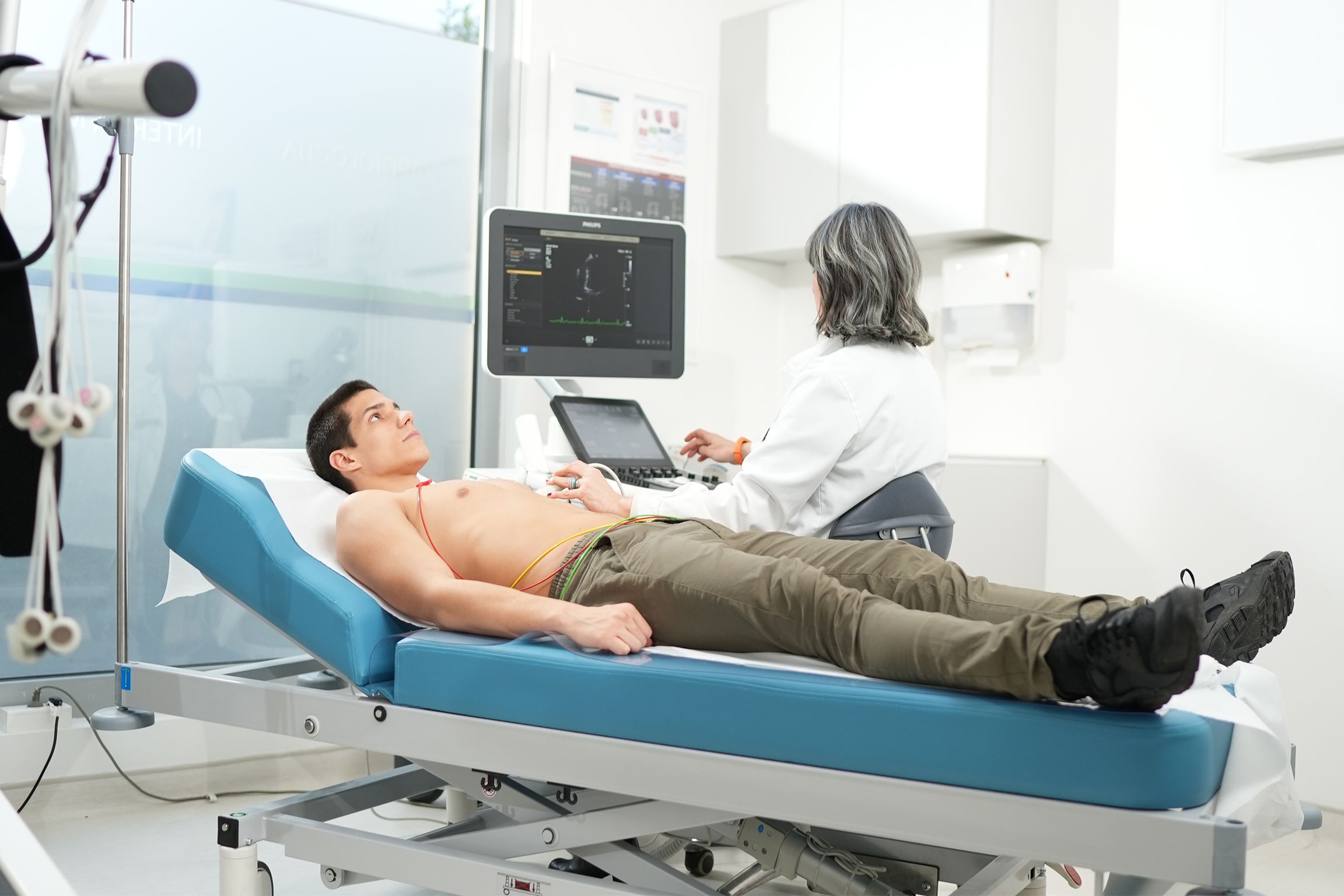Cardiology
Heart and blood vessel diseases are among the leading health concerns today. Early diagnosis and risk factor management are crucial in preventing serious complications like heart attacks, strokes, and other cardiovascular conditions.
At our clinic, we offer comprehensive cardiology consultations and advanced diagnostic methods to assess heart and vascular health. Through detailed evaluations and a personalized approach, our goal is early detection of underlying conditions, risk assessment, and timely treatment.

Cardiology consultation
A cardiology consultation involves a complete health assessment, symptom analysis, and risk evaluation. This examination includes:
- Medical history – A detailed discussion about symptoms, lifestyle, and family history of heart disease
- Review of previous medical records (if available)
- Physical examination, which includes:
- Inspection (visual assessment)
- Palpation (feeling for abnormalities)
- Auscultation (listening to the heart and lungs with a stethoscope)
- Blood pressure measurement (both systolic and diastolic)
- Electrocardiogram (ECG) – Recording the heart’s electrical activity
- Recommendations for additional tests and diagnostic procedures, if needed
When should you see a cardiologist?
A cardiology consultation is recommended for individuals experiencing symptoms that may indicate heart problems, as well as for those at higher risk of cardiovascular diseases.
Common symptoms that require a cardiology evaluation include:
- Chest pain (tightness, pressure)
- Heart palpitations, irregular heartbeat, skipped beats
- Shortness of breath, difficulty breathing
- Fatigue, dizziness, fainting
- Swelling in the lower legs
Additionally, preventive cardiology check-ups are important for individuals with risk factors such as:
high blood pressure, diabetes, high cholesterol, smoking, obesity, genetic predisposition, or a history of cardiovascular diseases.

Diagnostic methods
Our cardiology unit is equipped with state-of-the-art technology for precise and thorough heart function analysis and vascular assessment.
Available diagnostic methods include:
- Electrocardiogram (ECG) – Records the heart’s electrical activity
- Holter ECG monitoring (24-hour heart rhythm tracking) – Continuous ECG recording to detect arrhythmias and conduction disorders
- Ambulatory blood pressure monitoring (ABPM) – 24-hour blood pressure measurement for diagnosing hypertension and assessing cardiovascular risk
- Echocardiography (heart ultrasound) – Evaluates heart chamber size, valve function, and blood flow using color Doppler imaging
- Myocardial strain analysis (Speckle Tracking – aCMQ software, Philips Affiniti 50G) – An advanced technique for precise heart muscle function assessment
- Exercise stress test (ergometry) – Evaluates heart function and detects ischemic heart disease using a treadmill test (Schiller Cardiovit CS Touch 200 platform)
- Stress echocardiography – Ultrasound evaluation of the heart during physical or pharmacological stress (dobutamine stress test)
Each of these methods provides essential insights into heart and vascular health, allowing for accurate diagnosis and timely therapeutic interventions.

Personalized treatment plans
Based on the results of consultations and diagnostic tests, we create an individualized treatment and monitoring plan tailored to each patient’s needs, medical history, and risk factors. Evaluations can range from basic to comprehensive or executive-level check-ups, depending on the patient's requirements.
Managing cardiovascular diseases goes beyond diagnosis and treatment—it also involves adopting healthy lifestyle habits. Regular blood pressure control, a balanced diet, physical activity, and routine cardiology check-ups can significantly reduce the risk of complications.



